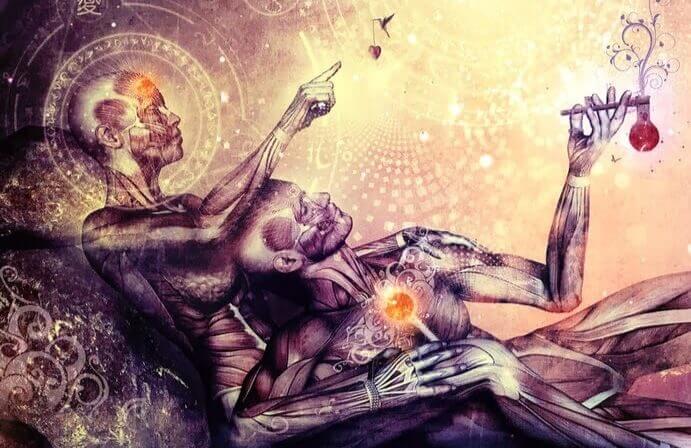As we mature, many of our beliefs change, including our perspective on love. Maturity involves understanding love in a different way: deeper and simpler. Mature love is a strong need whose satisfaction implies a long period of growth.
Each of us has an idea of what love means, what is really important and what we expect from a relationship, in this process preconceived ideas and personal beliefs are of fundamental importance in the way we live love.
- There are two types of love: mature love or conjugal love.
- Which is described as a loving friendship that includes affection.
- Trust.
- Respect.
- Loyalty and deep mutual understanding.
- And passionate or childish love.
- Which is a wild emotional state.
- Confused feelings and emotions such as tenderness.
- Sexuality.
- Joy.
- Pain.
- Anxiety and jealousy.
- Researchers say this love survives between 6 and 30 months.
- With the possibility of reappearing at times.
Is it time? Ignifuge ?, this teaches us to see with the eyes of the heart and to appreciate the real, experiences bring us closer to adult love, making us feel freer to express our feelings and be able to recognize the deepest states in each other. in this way, we can see beyond what our eyes show us.
“Love is self-knowledge. ” ? Kierkegaard?
A fundamental concept in adult and love is autonomy in itself, it may seem contradictory to talk about the union of two souls and talk about autonomy, but autonomy and self-esteem are inseparable, independents understand that others do not exist just to meet their needs. needs: they know that while there is a lot of love and understanding between two people, each responsible for himself, everyone is responsible for his happiness.
In maturity, we value each of the things we live, we appreciate the essence of the other and we accept him with his virtues and defects. Adult love gives life lessons, valuing the essence of the person. On the other hand, selfish and childish love seeks to hurt, hurt, or devalue the other person.
Loving satisfies one desire, a desire to offer tenderness to the other. Being loved responds to another need: the desire to be loved and appreciated. Loving oneself is a particular kind of success; Being loved is a reward. The principles that explain how we choose our peers are based on the interaction between one person’s characteristics and the appreciation of those same characteristics by the other.
Loving and being loved is not the only pleasure in the mature relationship, there is also the satisfaction of protecting, helping and guiding the other, transmits a lot of security and trust.
Maturation is the ability to withstand uncertainty
In the last 10 years, a profile of the normal development of love has been developed from adolescence to maturity, describing a typical evolutionary process, which shows that in the transition from maturity we are deeply committed to the most important aspects. of life as love, disconnecting us from previous influences.
At this stage, we feel better prepared to engage in an intimate relationship with another person, formalize the relationship, live together, and get married. People marry for security, self-affirmation, abandonment of the parents’ house and the need to achieve a vital goal of loving and being loved.
The vast majority of relationship problems often stem from the unwavering romantic demands on love and marriage, which are far from the reality of mature and objective love. These distorted ideas of passionate or childish love can endanger even couples who complement each other very well.
In short, mature love feeds on shared experiences, despite their internal conflicts and threats. The true wisdom of this kind of love is its own evolution, despite the wounds and differences that occur in emotional relationships.
To exist is to change, to change is to mature, to mature is to create.

